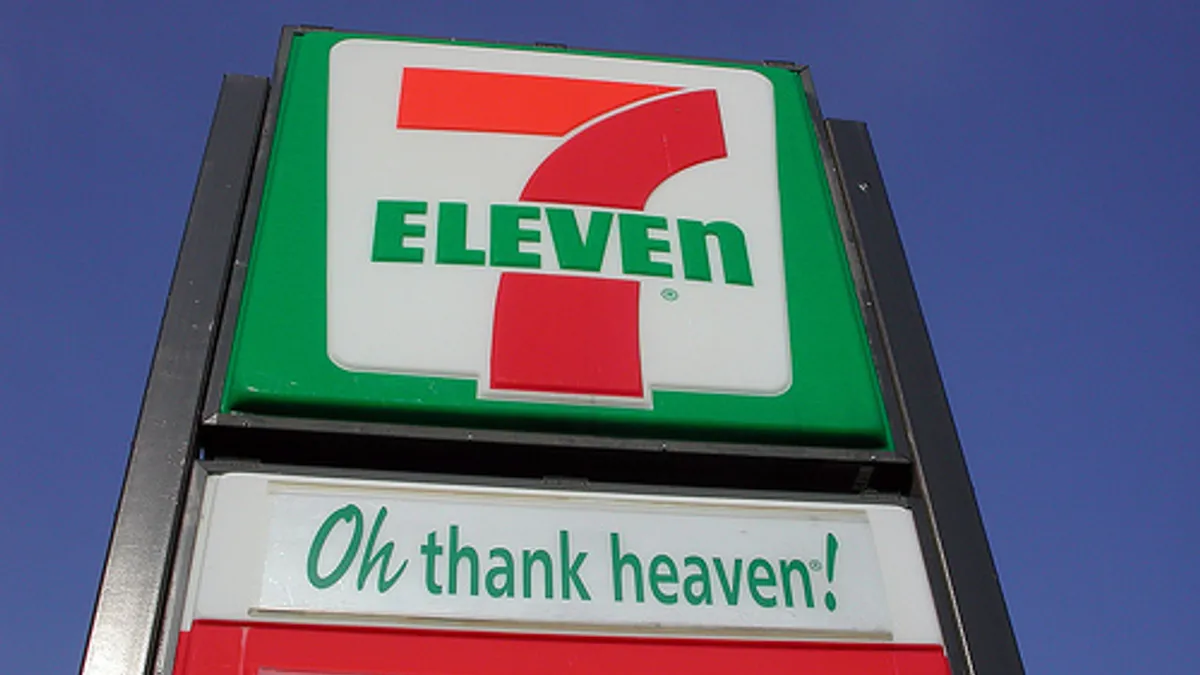Dive Brief:
- 7-Eleven has launched a new private label wine called Voyager Point, which includes Cabernet Sauvignon and Red Blend from California, and Sauvignon Blanc from New Zealand. The suggested retail price for the 750-ml bottle is $9.99. The convenience retailer also sells two other private label wine brands: Trojan Horse, introduced late last year for $6.99 a bottle, and its Yosemite Road label, which sells for around $3.99.
- According to a company press release, Voyager Point was benchmarked against the top-selling premium wines in each varietal. In testing, customers preferred Voyager Point over the higher-priced national brands, the company said.
- The company says the Voyager Point label was designed specifically to appeal to millennials, and the bottles come with an “easy-to-open” Stelvin closure, which is a screw top fixture that preserves freshness.
Dive Insight:
7-Eleven has been selling wine for decades, but the company notes that the new Voyager Point line “fills a gap for a premium-priced option.”
That's an important gap to fill. Consumer demand for high-quality, premium products continues to grow, particularly within the convenience store space. Outside of grocery and natural food stores, c-stores saw the highest premium sales in the wine and energy drinks categories. Not only does a private label, premium wine allow 7-Eleven to better compete in the c-store space, it also positions the company well against grocers that are increasingly jumping into the category, including Walmart, Target, Aldi and Lidl.
Indeed, with this release 7-Eleven has positioned itself to compete with grocery retailers in yet another important category. The chain is also focused on snacking innovation, premium beverages and other segments that supermarkets are also focusing on, underscoring the competitive threat c-stores now pose.
However, despite the growth in private label options and the increased demand for wine, 7-Eleven’s latest iteration may struggle to gain awareness among premium-seeking consumers. Despite the growth of private label brands, shoppers still think national brands are better, according to a new report from Acosta. Though 7-Eleven claims the wines were preferred by consumers when benchmarked against top-selling wines, it will have to dedicate some marketing dollars into translating those efforts to a broader audience. Perhaps 7-Eleven’s biggest advantage is having a large footprint, which will provide plenty of exposure to its new selection. 7-Eleven operates around 7,900 locations across 35 states.
7-Eleven is off to a good start with its private label wine presence, with stores in more affluent areas noting an increase in sales after its Trojan Horse line launched last year. As Tim Cogil, 7-Eleven’s senior director of private brands, noted, more wine drinkers are willing to pay a little more for higher-priced, higher-quality wines, adding, “we need to have options for our customers when they decide to trade up.”








